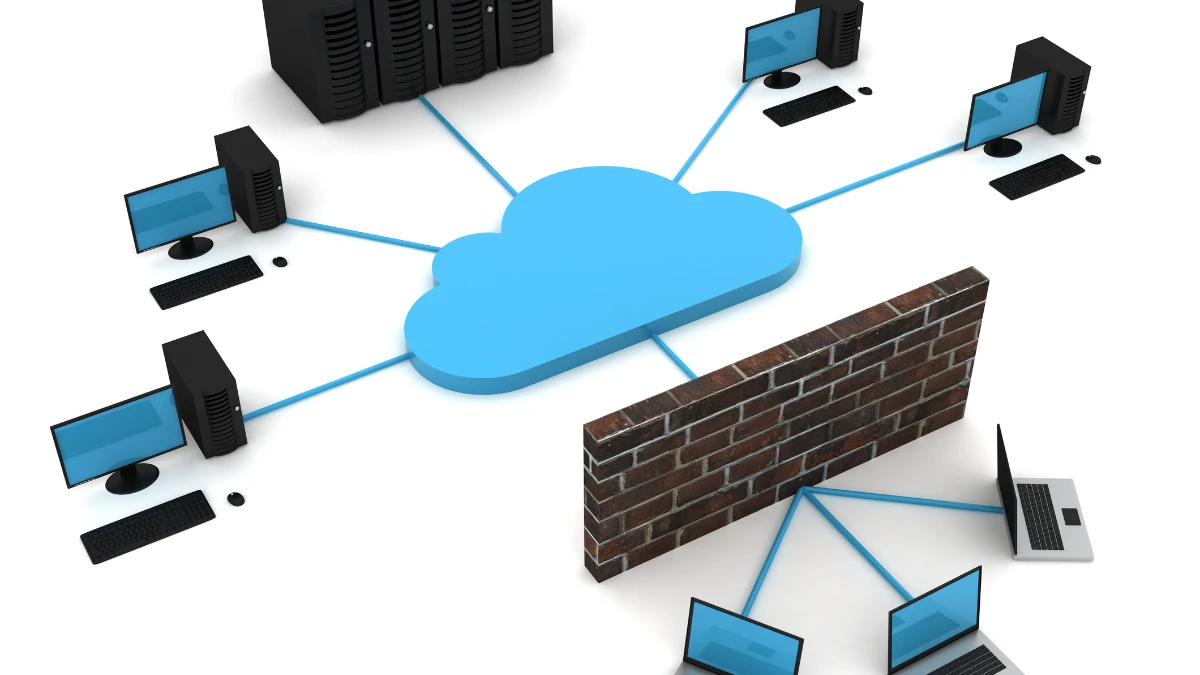The presence of a firewall facilitates the guarding and controlling of incoming and outgoing data traffic, especially in network security. One type of firewall is the cloud firewall, which offers several key functions and advantages.
The functions of a cloud firewall include centralized management to implement security policies. Moreover, the advantages include easy scalability, the ability to integrate into other platforms, to ease of management.
This article will give you information on cloud firewalls, including definitions, functions, and the advantages they have.
What is a Cloud Firewall?

Cloud firewall is a type of firewall that is network security software implemented in a cloud environment. Functionally, this firewall still monitors and controls network traffic, but its advantage is that it can be accessed and managed via the Internet.
Cloud firewalls are also referred to as Firewall-as-a-Service (FWaaS), which are usually managed by third parties. By using this type of firewall, companies do not need to physically manage hardware or software.
The Functions
The cloud firewall has several functions, from centralized management to implementing security policies. Here are some of its functions:
- Centralized management: This type of firewall offers centralized management from the service provider to manage the entire security.
- On-premise infrastructure protection: Able to protect on-premise infrastructure by routing traffic between cloud and on-premises environments.
- Implementing security policies: Can customize security policies according to business needs.
The Advantages

The cloud firewall has several advantages, from easy scalability, the ability to integrate into other platforms, to ease of management. Here are some of its main advantages in detail:
1. Easy scalability
One of the advantages of a cloud firewall is easy scalability. This type of firewall can adjust its scalability according to the company’s needs. You can increase or decrease its scalability without the need for additional hardware.
2. Flexible use
The flexibility of use is another advantage of this firewall. With just an internet connection, you can access and manage this device from anywhere. This will certainly facilitate the flexibility of teams with remote positions.
3. Ability to integrate into other platforms
By using a cloud firewall, various popular platforms can be easily integrated. This type of firewall can provide comprehensive protection for integrated cloud environments such as AWS, Azure, and Google Cloud.
4. Has good security and management

Cloud firewalls have centralized network security management policies that make it easier to control and manage. This type of firewall provides protection, detection, and prevention of threats by always performing automatic updates so that the firewall is always protected from the latest threats.
5. Ease of management
Cloud firewall management is fairly easy because its implementation does not require hardware installation. Apart from this, this type of firewall can be managed from anywhere, so there is no need for staff to be present who need to monitor the firewall location at all times.
6. Cost efficiency
Another advantage of cloud firewalls is cost efficiency. The absence of hardware installation makes this type of firewall have low installation costs. In addition, automatic recovery and updates will help reduce operational costs.
Those are the definitions, functions, and advantages of a cloud firewall that you need to know. Another thing to note is that firewalls on the market must pass the certification test from the Directorate General of Digital Infrastructure (DJID).
Firewall regulation is based on the Ministerial Decree (KEPMEN) No. 60 Tahun 2022, which requires all radio frequency-based devices to meet specific technical standards before being sold in the country.
With a DJID certification, users can feel calm about using a firewall whose quality and security are guaranteed. For manufacturers or importers of firewalls, obtaining certification from DJID is a mandatory step before the device can be officially marketed in Indonesia.
To simplify the certification process, we are available to assist with this process as a reliable solution. [UN].

